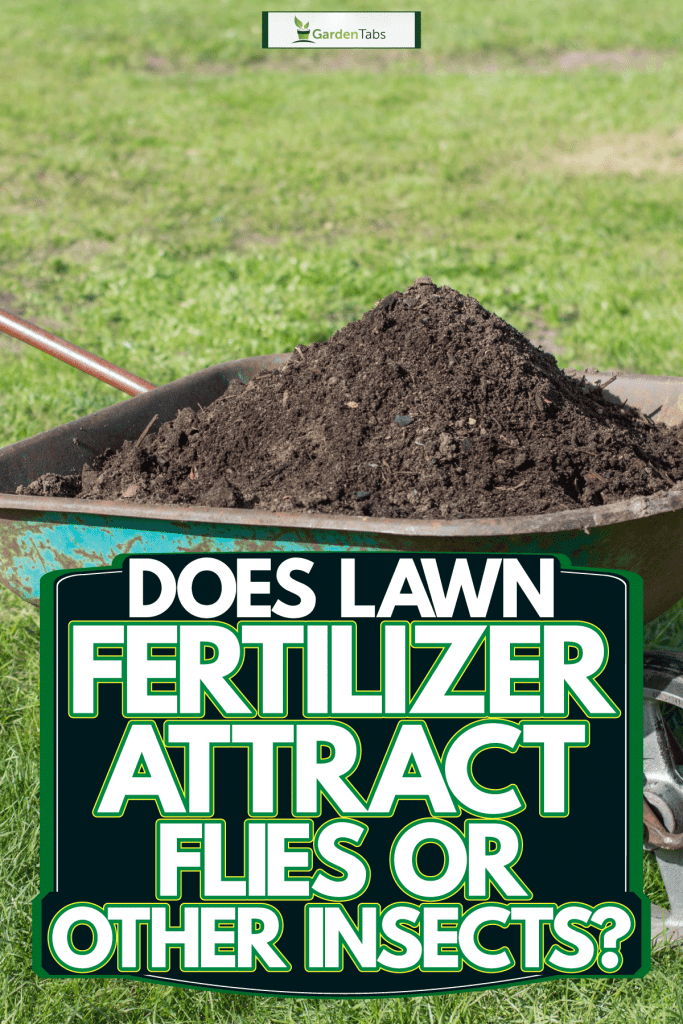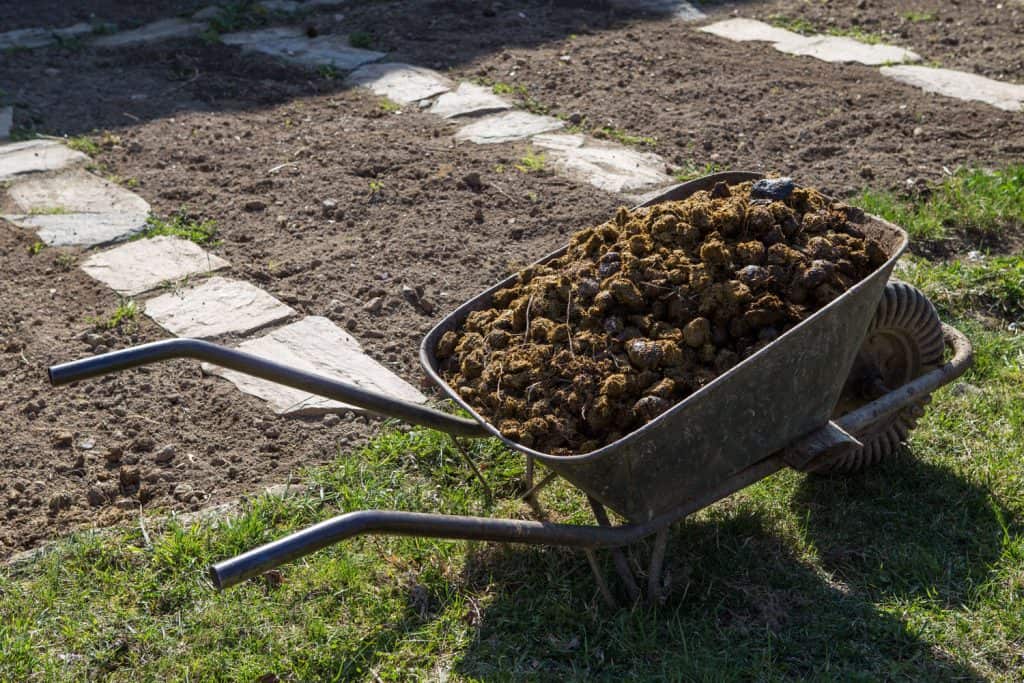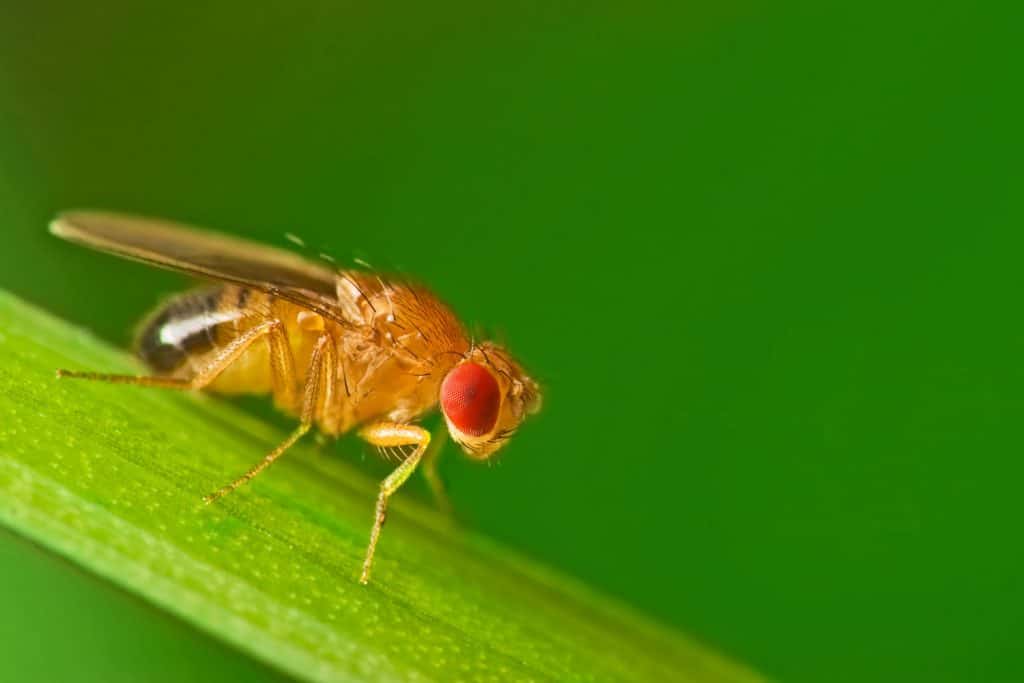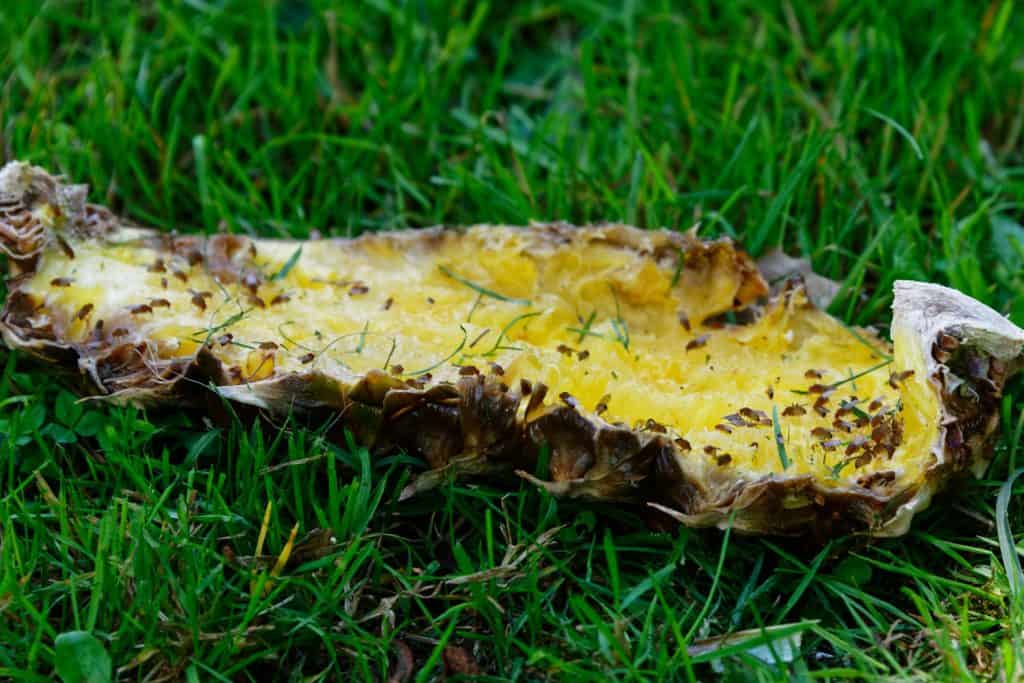Have you recently noticed an abundance of flies and other insects that seem to be drawn to your lawn and garden but aren't sure what the cause is? If you've recently fertilized your lawn, that could be why. We've done the research to explain why your fertilizer might be attracting insects and how to keep that from happening.
Your lawn fertilizer could be attracting flies and other insects depending on which type you use. This is because flies are attracted to decaying matter, which they use as a breeding ground to lay their eggs. But, a combination of other factors could be causing them as well.
In this article, we'll look at which types of fertilizer might be more likely to attract insects to your lawn and garden. We'll also look at ways that you can prevent this from happening in the future. Continue reading to learn more.

Does Lawn Fertilizer Attract Insects?
There’s no denying the benefits that fertilizer can add to your lawn. But it's possible that your lawn fertilizer could attract insects as well. The insects that it attracts can vary depending on the type of fertilizer you use.
There are two main types of fertilizer that people may use to fertilize their lawn: organic and inorganic. The kind used can depend on personal preference but can also depend on your purpose for fertilizing your lawn.

Organic Fertilizer
Organic fertilizers consist of things such as manure or compost. They are chemical-free and made of materials that naturally provide nutrients to the soil, typically dead or decaying matter. This type of fertilizer is usually used when starting a lawn or garden for the first time to encourage seeds to sprout and grow.
Organic fertilizer can attract beneficial insects to your lawn and garden, such as ladybugs, bees, and other pollinators. But, the problem with organic fertilizers is that they can attract flies and gnats as well, which can carry diseases or eat your plants.
Flies are attracted to dead and decaying materials that they can use to lay their eggs. You may start to notice an abundance of flies not long after fertilizing your lawn with manure or compost.
Inorganic Fertilizer
Inorganic fertilizer is typically any type of fertilizer you can buy commercially, either in granular, powder, or liquid form. These fertilizers are made of nitrogen, phosphorus, potassium, and micronutrients such as iron and zinc that are beneficial for plants and help them grow.
But, the problem with using inorganic fertilizer is that it contains nitrogen in very high concentrations. Studies have shown that high nitrogen levels in plants are treated with inorganic fertilizer cause the plants to be susceptible to aphids and mites, which can hurt the plants. This is because too much nitrogen can actually lower the plants' resistance to pests.
Why Does My Garden Attract So Many Flies?

Your lawn isn’t the only place where you may have noticed an increase in flies and other insects after fertilizing. Your garden is also prone to attracting flies, especially houseflies, fruit flies, whiteflies, and gnats. There are a couple of reasons why this is the case.
Fertilizer
The first reason is what we’ve already talked about a little; it depends on what fertilizer you use. If you use manure or compost in your garden, you’re likely to see more flies.
Yes, organic fertilizers tend to be better for keeping aphids and mites off of your plants because they contain more natural levels of nutrients. But, they also attract more flies as a result.
Fruits And Vegetables
The last reason your garden attracts flies could be due to what you grow in the garden. Some flies, such as fruit flies, use fruits and vegetables as their main food source. No matter what type of fertilizer you use, your garden is likely to attract these pests on some level.
But, if you don’t pick your fruits and vegetables soon enough and they become overripe or start to rot, this can attract even more flies. Overripe fruits and vegetables create the perfect breeding ground for flies and gnats to lay their eggs. Dead plant matter, such as leaves and petals that have fallen off of plants, can attract insects as well.
What Are The Flying Insects In My Lawn?

The flying insects that you often see flying in swarms in and above your lawn are most likely lawn or fungus gnats. If you have a lot of decaying plant matter or damp soil and grass for an extended period of time, you are more likely to see these insects. They aren’t a threat to your lawn, and they don't carry diseases; they’re just rather annoying in general.
Do Grass Clippings Attract Flies?
Grass clippings can attract flies and lawn gnats because they are considered to be decaying plant material. The problem can become worse if the grass clippings get wet, which will cause them to decay faster.
In order to help prevent flies, it’s important to pick up your grass clippings after cutting your grass and either bag them or put them in your compost bin.
How Do You Treat For Yard Bugs?
No matter the cause of bugs or what type of bugs you have in your yard, there are a number of ways that you can treat them and help prevent them from coming back. Whether you prefer to use a chemical deterrent or a more natural and organic option, here are some things you can try.
Fly Traps
If flies and gnats seem to be your main problem, then you might want to consider placing fly traps strategically around your yard and garden. There are a variety of traps out there designed especially for flies, or there are homemade options as well.
Of the store-bought fly traps, the selection ranges from sticky strips to traps that lure flies into them by using chemicals. Homemade traps can be just as effective, and you likely already have most of the ingredients used to make them at home.
Click here to see these disposable fly traps on Amazon.
But in either case, traps only have a limited area in which they work. You may need a lot of traps if you have a large yard or garden. Watch the video below to learn how to make two very effective homemade fly traps.
Plant Selection
You can also plant certain types of plants in order to keep flies away. Herbs such as basil, lemongrass, citronella, and lavender can all help repel flies, so plant them near your garden to keep them away from your fruits and vegetables.
Maintain Your Yard
One of the easiest and most effective ways to keep flies and other insects away, such as gnats, mosquitos, termites, ants, fleas, and ticks, is to perform regular maintenance on your yard. You’ll want to remove anything that could be a food source or a breeding ground for them to lay their eggs.
Remove anything from your yard that can collect water, such as woodpiles, leaves, tree stumps, and lawn equipment. Standing water provides the perfect environment for mosquitos and some types of flies and gnats to lay their eggs.
Some insects thrive in moist environments, especially if those areas are dark and dry. Keep areas as dry as possible by emptying birdbaths regularly, checking faucets for leaks, and removing water from pool covers, grill covers, and furniture covers.
Insects love to hide in tall grasses and overgrown plants. Keep your lawn mowed and trimmed, and keep weeds at bay to prevent vegetation from growing too high or thick. Bag up any grass clippings, twigs, or branches pruned from plants and dispose of them.
Finally, make sure that any trash cans or compost bins are covered up. Keep unused bags of potting soil and mulch closed as well in order to prevent ants or termites from making their home in them.
See more: "How To Store Compost In The Winter."
Natural Pesticides
For insects that affect certain plants, such as aphids on rose bushes, for example, there isn’t a lot you can do except treat them with pesticides. But if you’re against using chemical pesticides on your plants, there are more natural options such as neem oil or homemade versions that can help keep pests away.
See more: "How Often Should You Spray Roses For Aphids?"
Insecticides
For severe infestations, or if all else fails, you can always use a chemical insecticide. There are insecticides out there that target specific insects or insects in general. Just be careful where you use them and always follow the directions on the packaging.
In Closing
Flies or other insects in your yard can be caused by your fertilizer or some other cause. If you still want to reap the benefits that fertilizer can provide, you may need to switch fertilizers or employ a prevention method above to keep them away. Thanks for reading!

